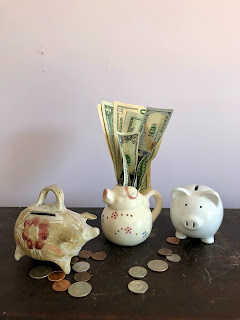Search This Blog
A place for Canadians to learn how to engage with the world of cryptocurrencies, stocks, real estate, and affiliate marketing.
Featured
5 Tips on How to Get Better at Budgeting
Budgeting does not have to be difficult, nor should it take up hours of your time. In fact, the best ways to budget are frequently the most basic. Take the 50/30/20 rule, for example. The 50/30/20 rule is a simple monthly budgeting method that tells you how much to put toward savings and living expenses each month.
With a clear big-picture overview of your monthly budget, you can confidently avoid overspending and gradually increase your savings.
So, what exactly is the 50/30/20 rule?
The 50/30/20 rule is a simple budget planning process that can help you live within your means successfully, simply, and long-term. The basic rule of thumb would be to divvy up your month-to-month after-tax revenue into three budget items: 50% for needs, 30% for wants, and 20% for savings or debt repayment.
You can put your money to work more efficiently if you keep your expenses balanced across these major spending categories on a regular basis. And by tracking only three major categories, you can save yourself the time and stress of delving into the details every time you spend.
Methods for Sticking to Your Budget and Jumpstarting Your Savings
1. Take your time when making large purchases.
Take a week to think about it if it's not something you require. Is this purchase accompanied by a payment plan (e.g., a car loan) that will disrupt your budget? Will this deplete your savings? How will this help you in your daily life? Is the advantage worth the cost?
Weigh the benefits to ensure that it adds value to your life while not putting a strain on your budget. If you've forgotten about it after a week, that's a pretty good indicator that you didn't actually need it.
2. Maintain a lower credit card limit.
Credit cards with high limits are easy to accumulate and difficult to pay off. Reduce your exposure to temptation! Maintain a lower credit limit and pay it off more frequently to avoid becoming trapped.
A good guideline is to stick to a maximum amount that you can pay off at once. This way, you can pay for your purchases with little or no interest while also building your credit in a healthy way. Search this blog Best Secured Credit Cards
3. Take on a no-spend challenge.
The idea is to make a commitment to not spend money on anything that isn't absolutely necessary. You can participate in a no-spend challenge for a week, a month, or even an entire year! It may appear extreme, but it is a remarkably effective way to shock your system, curb your spending habits, and change your money mindset.
Begin your no-spend challenge by writing down what qualifies as a necessity and how long you intend to go. Make it more interesting by challenging your closest friends or family members to see who can save the most money.
4. Take care of yourself first.
Set up some automatic transfers or put some money aside on payday to account for your bills, but more importantly, for YOU. Future-you will be very happy if you put money into your savings, TFSA, or RRSP every payday before you start spending your hard-earned money.
Even small amounts add up to larger sums, which can eventually be used to purchase a vacation or pay for an emergency engine repair on your car. Or maybe it will help you one day buy a house?
5. When you achieve your objectives, reward yourself.
Budgeting is more than just being disciplined. It's a tool to help you achieve your goals, do what you want, and live the life you want. So keep it lighthearted. Make the process more fun by rewarding yourself when you stick to your budget. It will transform your perception of budgeting from a chore to an enjoyable activity.
More Articles Below
Ingenious Ways to Invest Survey Money in Cryptocurrency
Advantages to Making Money From Home
Avoiding Investing Mistakes in a Bear Market
Photo by Diane Helentjaris on Unsplash









